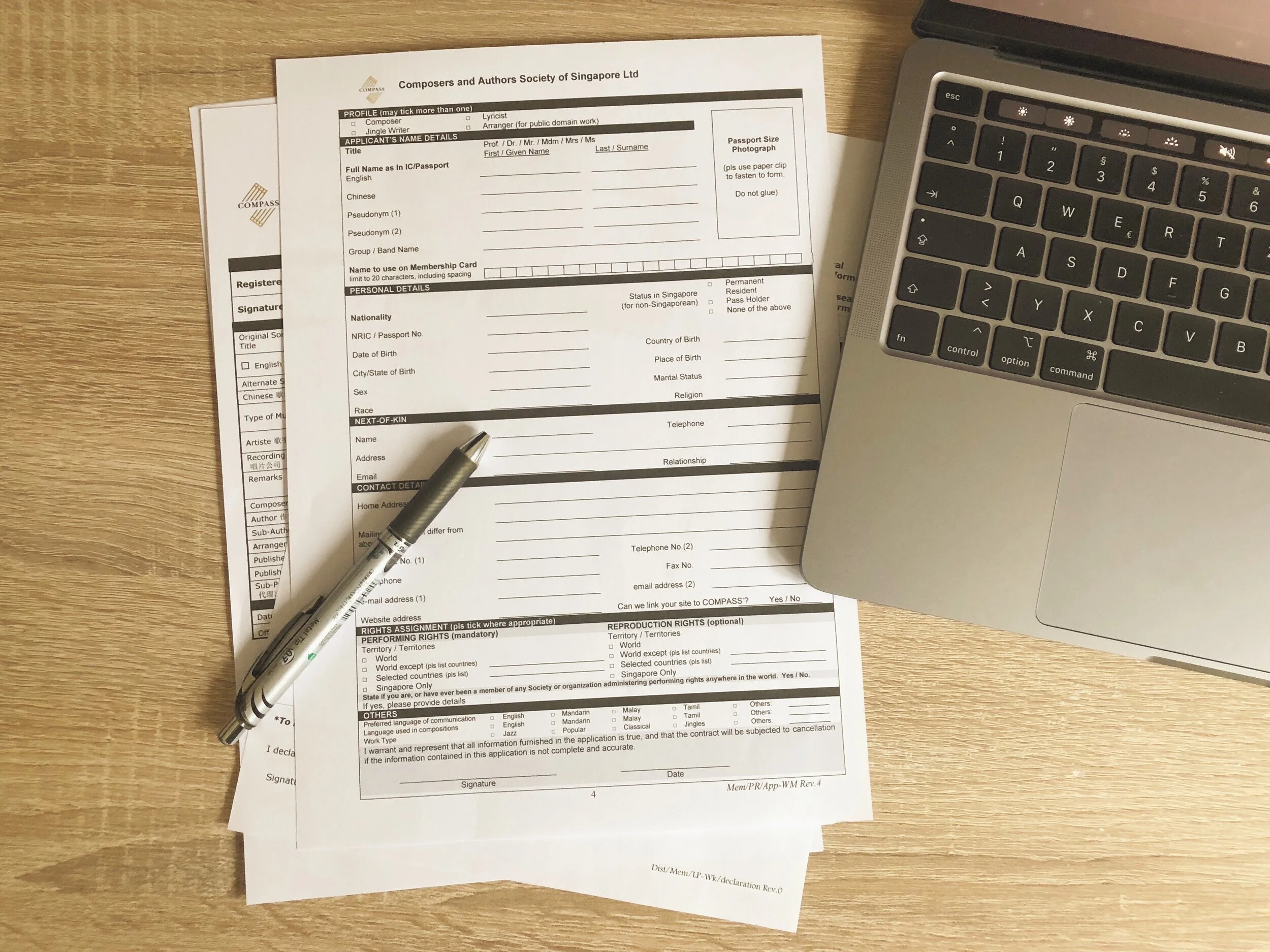First Album Essentials - The Paperwork
A huge thanks to everyone who took the time to read my last post on first album essentials. Now that you’ve hopefully found a producer and started to work on your songs, I’ll be talking next about another aspect when making that first record: the dreaded paperwork.
It’s the bane of musicians but I believe that the paperwork is just as important as the songs themselves. When you skip out on administration, you’re setting yourself up for a lot of trouble in the future. Here are 3 things that you should start with.
Sign Up with your PRO
Do you know that as a songwriter, you are entitled to royalties, every time your songs are performed? This isn’t limited to just your regular performances, but includes whenever your music is played on radio, in cafes, by someone covering your song etc.
In order to receive these royalties, you first need to sign up with your performing rights organisation, or PRO, and register your songs. In Singapore, that would be Compass. Unlike some other PROs, Compass does not require a yearly membership fee, so you stand to only earn money. There is quite a bit of terminology to deal with, so I would suggest reading up a bit (here’s one link you can start with) before you begin registration. After that, it’s only a matter of timely reporting your performances and waiting for Compass to distribute royalties.
However, local royalties do take about 1 year to be processed, while those collected from overseas performances could take 2 years or more to come. Still, it’s money that is rightfully yours in the first place and you deserve every single cent of it. For me, it has become the biggest source of income that I have as a musician. While you might not reap the benefits immediately, it can help to offset costs from producing that first record, or even be set aside for the next one.
Create a Metadata Sheet
A metadata sheet sounds very administrative (read:boring) and not exactly critical, so why should you make this sheet? This is where you organise and save important meta-information of your songs, so that you can quickly find them again when you need to. These include ISRC, ISWC, royalty shares with other songwriters etc. Here are some scenarios that could happen where this sheet would save you from a lot of headache.
When working with your producer and other musicians, you need to have the key and tempo of your songs on hand. You can neither guess on the spot nor expect others to figure them out on your behalf, as that might have drastic effects on how the final versions of your songs would turn out.
In the case that you decide to move your catalogue to another digital distributor in the future, you need to input information such as ISRC. Otherwise, the plays that you have on Spotify and the like might disappear, leaving you to start all over again with big fat zeros.
If you collaborated with other songwriters, being able to quickly refer to the royalty shares agreed upon is essential, especially in the case of legal disputes.
Besides these, signing up with your PRO and a metadata sheet are also vital must-haves, if you want to explore the world of sync licensing. It’s a topic that definitely deserves a full post on its own, which I’ll get around to, once I’ve dabbled enough in it to share my experiences.
Make Sheet Music for Your Songs
Everyone believes that they’re going to remember how to play all of their songs, as though they were written just yesterday. Unfortunately, this is not the case, which is why it is important to have your songs written out in great detail, so that you have something to refer to when you forget. There are various programmes available that come with decent playback capabilities. I’m currently using Musescore because it is free of charge.
I can understand that a lot of people shy away from writing their own sheet music because they might not have a background in music theory. The good thing is that there are tons of music theory lessons on YouTube. If you would like more structure, why not take lessons from a professional teacher? If you’re residing in Singapore, I’d recommend my old work place =) Otherwise, you could simply commission someone to write out the notation for you.
These are just 3 points off the top of my head, which I think would be the most relevant to beginners. Naturally, there are loads more, such as basic accounting, invoice templates, a PR contact list etc. No one likes paperwork, not even me, but unless you have money to spare, no one else is going to do it for you. So take your time with it, but don’t procrastinate!

